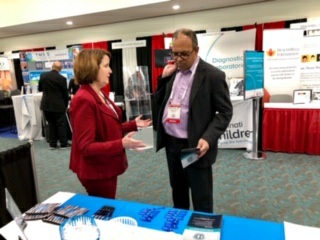血液學資源
ECD 是一種極其罕見的血癌,難以診斷,可以以多種複雜的方式表現出來。由於 Erdheim-Chester 病可能被低估,因此必須提高全世界的認識,尤其是在醫學界。血液學家與其他臨床醫生、病理學家和放射科醫生一起,在識別ECD方面發揮著至關重要的作用。如果醫生能夠準確快速地識別患者的 ECD,那麼就有可行的 FDA 批准和標籤外治療方法可以提高生活品質,減緩危及生命的疾病的進展,在某些情況下,甚至可能逆轉疾病造成的損害。成功或更積極結果的關鍵是早期診斷。
感謝提供資訊和評論以支援 ECDGA 宣傳工作的醫療專業人員。您對社區的奉獻將改變世界各地患者和家庭的生活。 
血液科醫生的關鍵點
- 這些病理變化都不是 ECD 獨有的,臨床和影像學特徵是診斷的關鍵。
- 對於典型的「毛狀腎」、腹膜后或骨骼受累的患者,尤其是伴有尿崩症的患者,高度懷疑 ECD 。
- 從頭到腳趾(全身)進行 PET-CT 掃描以捕捉膝關節周圍的骨幹受累並調查多器官受累非常重要。
- ECD 可能與朗格漢斯細胞組織細胞增多症 (LCH) 或髓系腫瘤共存。
- 分子研究在診斷和管理中發揮著越來越大的作用。
具有ECD經驗的血液科醫生
羅納德 S.馬里蘭州Go
電子郵件: go.ronald@mayo.edu
Gaurav Goyal 醫學博士
電子郵件: ggoyal@uabmc.edu
Paul Hendrie,醫學博士,博士
電子郵件: phendrie@uw.edu

